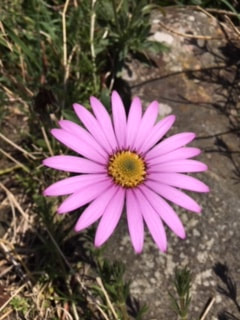
It is hard to believe that it was just a few weeks ago that apart from Brexit, one of the other major issues facing humanity was that of an unfolding ecological crisis. For most of the world, our eyes have been redirected towards the daily updates of shortages of PPE equipment, the governments scrambling to increase testing and tracing and the mounting death toll due to covid-19.
But if you are willing to dig deep enough in the news, you will be reminded that beneath the current covid-19 focus, there is still burning away in the background, questions of the well-being of our planet.
It was one article in particular that stood out for me this week. It was an article that shows preliminary findings that shows some kind of a correlation between high numbers covid-19 deaths and levels of poison or toxcity in the air (normally referred to as pollution). The study looks at data specifically across Europe and seems to suggest that those areas that have had the highest number of covid-19 deaths also have the highest levels of nitrogen dioxide pollution, which is known to have long term effects on the lungs.
The data suggests very strongly that our well-being as human beings is directly dependent upon the well-being of the earth. Our capacity as human beings to fight and overcome the corona-virus is is being linked to how clean the air is that we breathe.
But this is not some novel new idea linking human health with levels of air toxicity. A few months ago, on the 12th of January, when life seemed normal, in that strange time when we could wonder the streets freely, popping in a browsing in different shops, Wendy and I walked past the British Heart Foundation in Bow Street in Lisburn on the way to the bank. A poster in the window of British Heart caught my attention.
It read as follows:
You’re full of it.
We all are.
And then in the fine print:
There are toxic particles in the air we breathe.
They get into our blood, get stuck in our organs,
and increase our risk of heart attacks and stroke.
Demand a change in the law.
Search BHF toxic air.
And so the link is there. Our well-being as human beings is connected to the well-being of the earth.The well being of our bodies, our hearts, our kidneys, our livers, our brains and our lungs are connected to how poisonous or clean the air is that we breathe, the quality of our water, our land and our soils.
On Wednesday, the world observed International Earth Day.
And so I would like to briefly reflect on Earth Day from the perspective of our Christian Faith. And in doing so, I would like to summarise the thoughts of a Christian Minister from the United States, the Rev. Michael Dowd, from the United Church of Christ, who has been trying to help Christians value and care for the earth for most of his adult life. It has been his life’s mission one could say to help people to connect their faith in God with a deliberate attitude of care for the earth.
The first thing he says is that the ecological problem is a problem firstly in our thinking, a problem of our world view. He says that if we want to change people’s behaviour, it will only come with a change in our thinking.
He says a major problem is that we have inherited an outdated cosmology, and that we need to update our Christian cosmology by integrating insights and truths from science. The healing of our world will come with a healing of our cosmology, a deepening of our cosmology. The time has come to no longer see faith and science as enemies, but to integrate the two into a new sacred cosmology.
Firstly, he invites us to integrate evolutionary thinking into our faith. He reminds his listeners that there is something miraculous and awe inspiring about the fact that the creation of the universe has taken 150 Billion years to bring us to this point. We are part of a living and unfolding miracle of life. It has taken the universe 150 billion years to produce a planet like ours that can not only sustain life, but for life on earth to become self-conscious in human beings. When one considers the scale of time of God’s creative work through evolution, Michael Dowd suggests that like Moses we will come to see that we are walking on sacred ground. Each of us is living in the Holy Land. A world, an earth that has taken billions upon billions of years to bring us to the point that we are today. What an amazing miracle we are part of. It is a miracle that needs to be honoured, treasured, revered and cared for.
In the world of human art, most often, those items that are most intricate and that have taken the longest to produce with the greatest care and skill, are the most rare and treasured. God’s artistry in creation has taken 150 billion years. Even science tells us that the earth is something rare and beautiful and needs to be treasured.
Secondly, Michael Dowd invites us to come to a knew understanding of God. For Michael Dowd, the word God is Synonymous with Reality with a capital R. God is the Totality of all that is truly Real, both seen and unseen, things known to us and things as yet unknown to us. God, he says is Reality with a Personality. God is the sum total of all the collective Wisdom and Intelligence of the entire Universe which holds, encompasses and includes everything that exists including you and me. We are part of Reality. In other word’s we are part of God, and yet, God is also the Vastness that cannot be measured. We are expressions of Reality, expressions of the Great Divine Mind.
All of this is not incompatible with our Christian faith. The verses that I referred to in last week’s sermon resonate with much of Michael Dowd’s view. God is Over-all, Through all, In all. God is the Great Breathe Life living and Breathing through all things. In Him we Live and Move and have our being. We are God’s off-spring, and to worship God in Spirit and Truth is to worship God with every breathe we take by aligning ourselves with God or Reality.
Thirdly, Michael Dowd invites us to consider a new understanding or interpretation of the Trinity. No not all Non-Subscribers would be Trinitarian, but Michael Dowd’s interpretation perhaps gives an interesting fresh perspective.
God as Father ,according to Michael Dowd, represents the Creative Wise Source that includes all that has brought us to this point in the History of the Universe. To live in relationship with God the Father, is to learn from the Wisdom of our 150 billion year the Past, it is to learn to live in harmony with, or in accord with all the Wisdom of the Past, this includes the Wisdom of our own Scriptures and supremely the Wisdom made known in Jesus, along with the collective wisdom of all wise sages of history as well as all that we have come to learn from science about Universe in which we live.
God as Spirit according to Michael Dowd is to live in accord with Reality as we live and experience it in the Present, learning to live in tune with and Harmony with the Heartbeat and Breathe of God, the Breathe of Life here and now in this Present Moment. It is to learn to listen to how God is speaking to us through nature at this present time. Juvenal, the great Roman poet writes that “Never does Nature say one thing and Wisdom another.”
And then speaking of God as Son, or God as OffSpring, according to Michael Dowd, this represents all that is still to come. In our Christian tradition, the future is always expressed in terms of the Son and the coming again of the Son. To be Christlike is therefore to honour the future. The appearance of Jesus amongst us 2000 years ago, in a way was the future visiting humanity in our past, the future, expressed in and through Jesus life and teaching, inviting humanity into a fuller and deeper future in which we more and more express our true potential as human beings which is our true potential for love. It is for this reason that Jesus is in Scripture poetically referred to as the first-born among many. Jesus represents the birth of a new and fuller humanity amongst us. Jesus represents who we are all to become, expressions of divine love. As the Apostle Paul puts it in Romand 8:29, God has predestined us to be conformed to the image of His Son, so that He would be the firstborn among many brothers and sisters.
To honour and worship the Son, is to live as people who honour the future as well.
To honour the future is to become less selfish in the present. It is to consider the consequences of our actions. It is to honour the generations who are yet unborn. Those who are still to come.
And unfortunately, that is what has become almost completely lost in the past 50-80 years of human history. We have forgotten the art of honouring those who will come after us. Our world economy in the past 50-80 years has been one that has become more and more like a shark’s feeding frenzy, a race to see who can become the richest the quickest, with no sense of the future, no sense of what effect this is all going to have on the generations to come.
I think by contrast of those who lived in the medieval period, building cathedrals that they knew they would never see the completion of.
Michael Dowd uses the example of Date farming. If you want to become a date farmer, you need to start planning 80 years in advance, because date trees only begin to bare fruit after 80 years. Any date farmer today is living off the legacy of the past, a grand-parent or great-grand-parent who had the fore-sight to plant a date tree and to water it, tend it and care for it, knowing that it would only be a future generation who would enjoy the fruit of it.
This wisdom is expressed by the Native American’s in the Great Law of the Iroquois. They have a saying that “In our every deliberation, we must consider the impact of our decisions on the next seven generations.”
Getting back to the thoughts of Michael Dowd, he suggests that God/or Reality is not finished with humanity yet. The next stage of our growth and evolution as human beings is to learn the way of love, expressed probably most profoundly in the life of Jesus who on the cross opened his heart to the world in healing love. This is what God has predestined us to be according to Paul in Romans.
To learn that lesson of love, is to learn to love God / Reality above all things, and in doing so, to love our fellow human beings as ourselves, together with all creatures that live and move on this planet and contribute to the great diversity of life in this world. It is to love the blue sky, the rain, the earth itself.
In closing, Michael Dowd speaks of the second commandment against idolatry. He says the great idolatry of our current world culture is the idolatry of humanity itself. We have elevated human well-being above the well-being of the earth. We have forgotten that the well-being of human beings is completely dependent on the well-being of the earth.
This idolatry of humanity is seen very starkly even in recent weeks in the face-masks and surgical gloves that have begun to litter our streets, gutters and green spaces even in a small town like Dromore, and that can be seen floating in rivers and already being washed up on beeches around the world.
And yet, evidence suggests that we we truly want to beat this virus; if we want to give human beings the best chance of surviving it, we need to stop polluting and poisoning the world we live in.
On this Earth Day week, as we pray for the healing of those with Covid-19, may we pray also for the healing of the Earth. Amen.
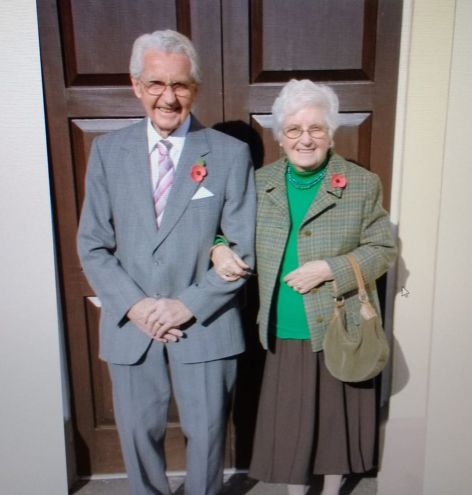
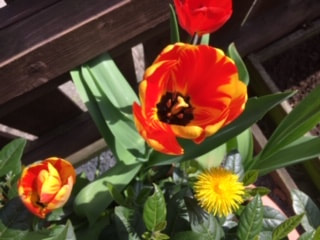
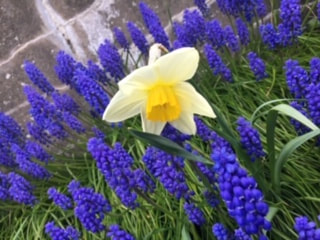
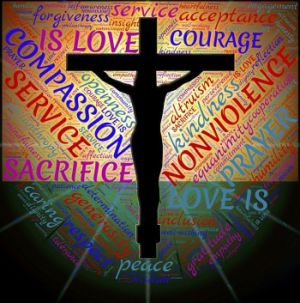
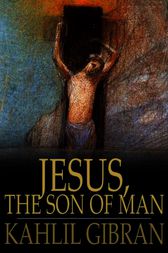
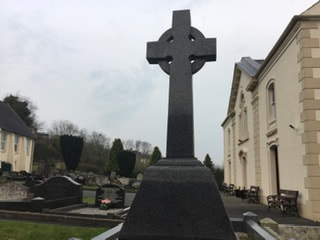
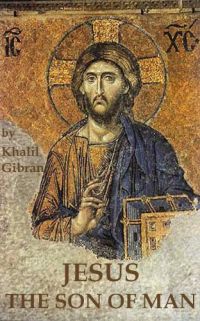
 RSS Feed
RSS Feed